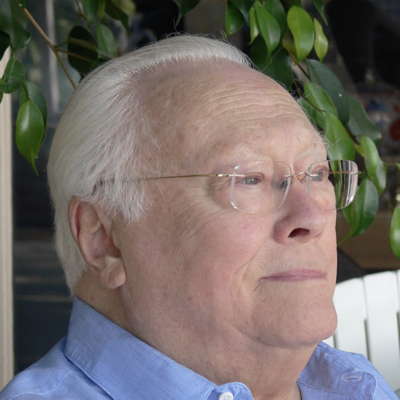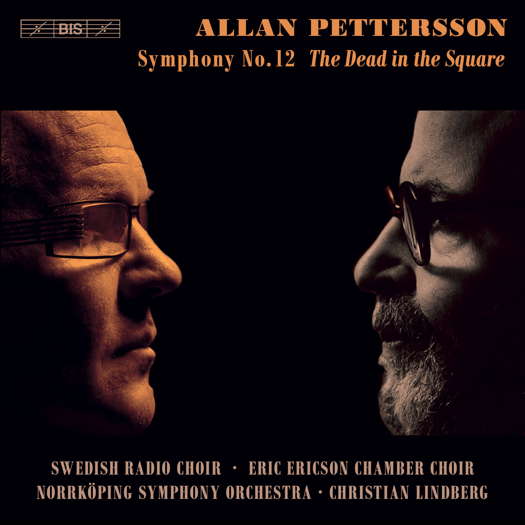- George Walker
- Lee Hoiby
- Edvard Mirzoyan
- Sony BMG
- Justin Connolly: Celebratio per viola sola
- Hansung Yoo
- Shanshan Yao
- Carl Schimmel
 VIDEO PODCAST: Find out about composers from unusual places, including Gerard Schurmann, Giya Kancheli, Nazib Zhiganov and Nodar Gabunia, about singing in cars, and meet Jim Hutton from the RLPO and some of our regular contributors.
VIDEO PODCAST: Find out about composers from unusual places, including Gerard Schurmann, Giya Kancheli, Nazib Zhiganov and Nodar Gabunia, about singing in cars, and meet Jim Hutton from the RLPO and some of our regular contributors.
 DISCUSSION: John Dante Prevedini leads a discussion about Composers, individuals or collective?, including contributions from David Arditti, Halida Dinova, Robert McCarney and Jane Stanley.
DISCUSSION: John Dante Prevedini leads a discussion about Composers, individuals or collective?, including contributions from David Arditti, Halida Dinova, Robert McCarney and Jane Stanley.

The Dead in the Square
Allan Pettersson's Symphony No 12, strongly recommended by GERALD FENECH
'Christian Lindberg gives a colossal interpretation of this difficult score, where everybody involved is wholly engrossed in Pettersson's unique creation.'
Allan Pettersson (1911-1980) is, maybe, the greatest Swedish composer of the twentieth century. He was the youngest of four children of a violent, alcoholic blacksmith. He was born at the manor of Granhammar in Vastra Ryd parish in the province of Uppland, but grew up in poor circumstances in the Södermalm district of Stockholm, where he lived until his death. This childhood experience of near depravity, added to the grave illnesses he had to endure - rheumatoid arthritis in the 1950s and a kidney disease in the 1970s - shaped his symphonic output for which he is most famous. He composed sixteen symphonies in which he not only created a new and vibrant sound world, but was also a strong voice for the poor and the downtrodden.
In the 1970s Pettersson enjoyed a high level of success after the premiere of the seventh symphony in 1968. Indeed, in 1970 the composer was elected as a member of the Royal Swedish Academy of Music. At the time, he was working on his huge Ninth Symphony, but soon after this had been completed, he was admitted to hospital with kidney trouble. His condition was very serious and he remained in hospital for nine months. While still a patient, but feeling sufficiently stronger, he started work on Symphonies Nos 10 (1972) and 11 (1973). On finishing these two works, it seemed like the end of a section of Pettersson's output, and possibly also his life. When the composer left hospital he felt reinvigorated and soon embarked on new challenges. In the same year he composed his eleventh symphony and an orchestral poem to accompany a nature film for Swedish Television. The latter was something different, because up to then, Pettersson had exclusively written only symphonies.
It was now time to compose something on commission. The opportunity presented itself when Uppsala University was due to celebrate its five-hundredth anniversary in 1977. Carl Rune Larsson, the University's director of music, was acquainted with Pettersson's work, and did not hesitate to commission a major piece by the composer that was 'contemporary in a profound sense'. The composer accepted the commission, and for the first time in twenty-eight years, he chose to compose to a text. The choice fell on poems in Swedish translations from Chilean Pablo Neruda's vast poetic cycle Canto general. Pablo Neruda (1904-1973) was both a poet and politician and, above all, an advocate for the poor, oppressed and underprivileged both in his writings and political activity. Controversially awarded the Nobel Prize for Literature in 1971, he was also a member of the Chilean Communist Party and a staunch admirer of President Salvatore Allende.
Canto general is a massive work, consisting of more than 15,000 lines of poetry dealing with Hispanic-American history from the fifteenth century until the present. Pettersson chose nine of these poems and set them to music which describes a massacre of innocent demonstrators that took place in Santiago de Chile on 28 January 1946. The subject was not considered ideal for an academic celebration, if only for its political connotations, and even more so in view of Allende's violent death during a military coup in 1973. Perceiving that the work might be criticized as being a political statement, Pettersson wrote a forward to the Symphony in which he made it very clear that his commitment was not political but an artistic outburst for the legion of outcasts of society, where 'even the Good Samaritan has been struck down by a cruelly persistent political order'. Indeed, the primary aim of the work was to give the dispossessed a voice, and it is evident that Pettersson felt an affinity between the poor in Chile and his own working-class origins.
The premiere of this quite extraordinary symphony took place on 29 September 1977, and opinions were by far and large favourable. The only negative comment was that it sounded more like a requiem than a ceremonial occasion. Like most of his symphonies, it is in a single movement, even though there are nine different sections according to the poems chosen. The work is subtitled 'The Dead in the Square', the title of the first of the poems, and it was composed for choir and orchestra. The choir sings largely uninterruptedly, often very forcefully and in different registers, which makes the choral parts more demanding.
Listen — Allan Pettersson: The Dead in the Square (Symphony No 12)
(track 1, 3:45-4:30) ℗ 2020 BIS Records AB :
Pettersson very often lets the music go against the rhythm of the text, and the style of writing shifts between highly chromatic passages and others with exchanges between simple minor chords. The Symphony contains few passages in which the listener can rest for any given time in a well-defined tonality, and when this does occur there are usually 'disturbing voices which maintain the anxiety and tension'.
Listen — Allan Pettersson: The Massacres (Symphony No 12)
(track 2, 4:44-5:44) ℗ 2020 BIS Records AB :
The text is characterized by cruelty and grief, but in the final strophe, hope is rekindled through a vibrant chord in C major.
Listen — Allan Pettersson: Always (Symphony No 12)
(track 9, 7:35-8:31) ℗ 2020 BIS Records AB :
Christian Lindberg gives a colossal interpretation of this difficult score, where everybody involved is wholly engrossed in Pettersson's unique creation. Indeed, Lindberg wades his way through the textures, shaping every phrase with almost perfect timing and detail - a heroic effort, where the tension practically never decreases. The choir also plays its part splendidly, with singing that is always full and rounded. Orchestra and choir weave a fascinating tapestry of sound held in perfect balance, while Neruda's words and Pettersson's music form a formidable duo in this emphatic statement on the abuse of justice in today's world.
A blockbuster of a disc in this ongoing cycle of Pettersson's symphonic output. Impressive sound quality and annotations are further bonuses. Strongly recommended.
Copyright © 27 February 2021
Gerald Fenech,
Gzira, Malta

CD INFORMATION - ALLAN PETTERSSON: SYMPHONY NO 12
MORE CLASSICAL MUSIC ARTICLES ABOUT SWEDEN


